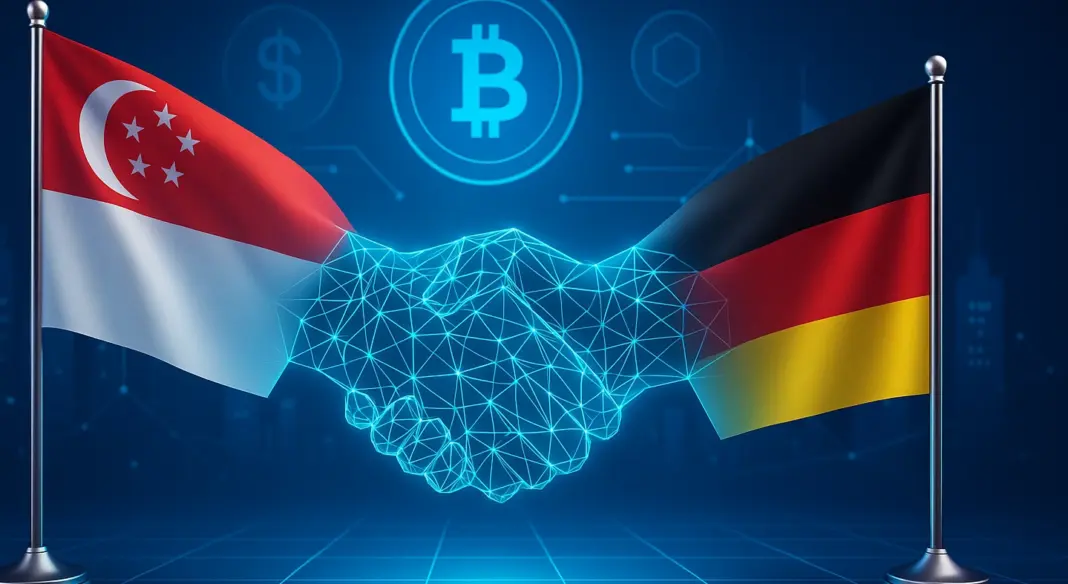Singapore and Germany — two major financial powerhouses — have signed a strategic agreement that could reshape how digital assets travel across borders.
The Monetary Authority of Singapore (MAS) and Germany’s Deutsche Bundesbank have formalized a memorandum of understanding aimed at advancing cross-border settlements for tokenized assets, including digital versions of bonds, equities, and potentially far more.
Stay ahead in the crypto world – follow us on X for the latest updates, insights, and trends!🚀
A shared framework for payments, FX, and securities flows
This is more than symbolic cooperation. The partnership focuses on lowering settlement costs and accelerating the movement of money between the two countries by developing next-generation digital settlement mechanisms.
In practical terms, it aims to establish common standards for payments, foreign exchange, and securities transactions involving tokenized assets.
By aligning their rulebooks, both central banks hope to create a seamless environment where digital assets can move between their systems with far less friction.
The move also builds on MAS’s high-profile Project Guardian, an initiative designed to improve liquidity and streamline financial operations through asset tokenization.
Teaming up with Deutsche Bundesbank expands Singapore’s reach deeper into Europe’s financial ecosystem — while giving Germany a direct bridge into Asia’s booming fintech sector.
Efficiency, interoperability, and the future of financial plumbing
Leong Sing Chiong, MAS’s deputy managing director, said the initiative will “enhance financial connectivity” between the two markets, benefiting everyone from multinational corporations to retail investors.
Deutsche Bundesbank board member Burkhard Balz echoed that sentiment, calling the partnership a step toward “new financial infrastructures” that prioritize efficiency, innovation, and — critically — interoperability.
That last piece is key: without interoperability, even the best digital asset systems remain isolated islands.
A model that could spark a global chain reaction
Both central banks emphasized that this agreement builds on already strong financial ties between Singapore and Germany, two hubs actively shaping the next generation of digital asset infrastructure.
If the collaboration succeeds, industry observers believe it could trigger a wave of similar alliances, accelerating the transition from today’s slow, fragmented settlement processes toward a world where digital tokens move across borders in minutes — not days or weeks.
For anyone tired of clunky international transfers, this might be the first sign that the future of cross-border finance is finally catching up with the tech built to power it.
Disclosure:This article does not contain investment advice or recommendations. Every investment and trading move involves risk, and readers should conduct their own research when making a decision.
Kriptoworld.com accepts no liability for any errors in the articles or for any financial loss resulting from incorrect information.
Cryptocurrency and Web3 expert, founder of Kriptoworld
LinkedIn | X (Twitter) | More articles
With years of experience covering the blockchain space, András delivers insightful reporting on DeFi, tokenization, altcoins, and crypto regulations shaping the digital economy.
📅 Published: November 15, 2025 • 🕓 Last updated: November 15, 2025
✉️ Contact: [email protected]


